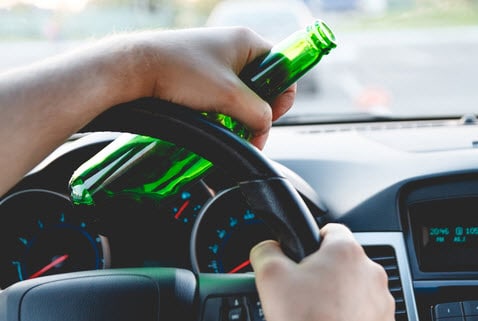
Alcohol-related crash victims have multiple legal options, and they need them. Alcohol is a factor in about a third of the fatal car accidents in South Carolina. This proportion has increased since pandemic lockdowns began in 2020. During these lockdowns, vehicle traffic and traffic enforcement both dropped to practically nothing in many areas. Therefore, drivers developed some bad habits, including drinking and driving.
Even if the tortfeasor (negligent driver) wasn’t legally intoxicated at the time of the wreck, a Columbia DUI accident attorney can still obtain compensation for the victim’s economic losses, such as medical bills, and noneconomic losses, such as pain and suffering. A third party is often financially responsible for these damages. Because of these multiple options and the possibility of vicarious liability, these claims are quite complex.
Circumstantial Evidence of Impairment
The impairing effects of alcohol include clouded judgment and slow motor skills. These effects make it very dangerous to operate heavy machinery, such as a motor vehicle. Furthermore, these effects begin with the first sip of alcohol. Evidence of alcohol impairment includes:
- Erratic driving before the wreck,
- Physical symptoms, such as bloodshot eyes and an odor of alcohol,
- Tortfeasor’s point of departure (e.g. did the tortfeasor leave from a bar or restaurant), and
- Tortfeasor’s statements about alcohol consumption.
In criminal court, these items wouldn’t prove criminal conduct. But the burden of proof in civil court is only a preponderance of the evidence (more likely than not). Therefore, a little proof goes a long way.
Driving while impaired checks all the boxes of an ordinary negligence claim. The duty of care requires motorists to be at their best, physically, mentally, and otherwise, when they get behind the wheel. Even a slight alcohol impairment breaches this duty. If a breach of duty causes injury, compensation is available.
Direct Evidence of Intoxication
When tortfeasors violate safety laws, like the DUI law, they could be responsible for damages as a matter of law. This responsibility applies even if the tortfeasor “beats” the DUI in criminal court. Civil juries decide all the facts, including guilt or innocence of a DUI, in civil cases.
The negligence per se shortcut doesn’t come up very often in car crash cases. Many emergency responders don’t issue citations in these situations. DUIs are different. Most jurisdictions have mandatory arrest policies in these situations.
Vicarious liability usually applies in negligence per se cases as well. It also applies in ordinary negligence cases. It’s illegal in South Carolina for restaurants, bars, and other commercial alcohol providers who knowingly serve intoxicated people who later cause car wrecks. Generally, people or entities that commit illegal acts are liable for these incidents in civil court.
Unlicensed sales, after-hours sales, and underage sales are illegal as well. Therefore, the dram shop law usually applies in these situations as well.
Connect With a Savvy Richland County Lawyer
Injury victims are entitled to significant compensation. For a free consultation with an experienced personal injury lawyer in Columbia, contact the Marc Brown Law Firm. Virtual, home, and hospital visits are available.
Source:
bankrate.com/insurance/car/drunk-driving/